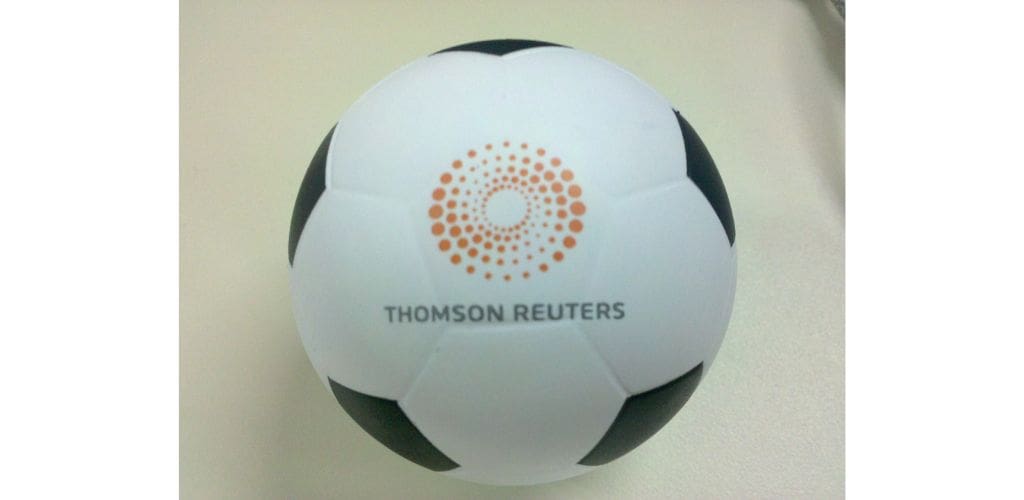Thomson Reuters has won a summary judgement in a copyright case involving artificial intelligence (AI).
In a sometimes-poetic decision, Judge Bibas revised his 2023 summary judgement opinion and order, saying
A smart man knows when he is right; a wise man knows when he is wrong. Wisdom does not always find me, so I try to embrace it when it does––even if it comes late, as it did here.
As the court noted, “The law is no longer a brooding omnipresence in the sky; it now dwells in legal research platforms.”
Thomson Reuters owns Westlaw, one of the biggest of those platforms.
Users can pay to access Westlaw, including “case law, state and federal statutes, state and federal regulations, law journals, and treatises.”
As the court noted, “Westlaw also contains editorial content and annotations,” such as headnotes which summarize key points of law and case holdings. These headnotes are categorized using the Key Number System.
For example, if a researcher finds a relevant case that includes a specific Key Number, the researcher can expect to find more relevant cases by searching for other instances of the same Key Number.
The text of a legal decision is not copyrightable, for reasons of public policy, so that it’s available to everyone.
However, headnotes, annotations, and other original content added to a decision by a legal publisher are protected by copyright law.
Ross, a new Westlaw competitor, made its own legal research search tool using AI.
To train its tool, Ross needed a database of legal questions and answers and thus asked to license Westlaw’s content. Because Ross was a competitor, Thomson Reuters refused to grant such a license.
Ross then arranged with a company called LegalEase to get training data in the form of “Bulk Memos.” These are compilations of legal questions with good and bad answers, created by lawyers.
LegalEase directed the lawyers to create the questions using Westlaw headnotes but advised them not to just copy and paste the headnotes into the questions.
LegalEase provided about 25,000 Bulk Memos to Ross to train its AI search tool
When Thomson Reuters discovered this, it sued Ross for copyright infringement. Thomson Reuters accused Ross of infringing 21,787 headnotes, the editorial decisions in 500 judicial opinions, and West’s Key Number System.
In 2023, Judge Bibas largely denied Thomson Reuters’s motions for summary judgment on copyright infringement and the fair-use defense under copyright law. But, having studied the case materials more closely, the judge postponed the trial scheduled for August 2024 and invited the parties to renew their summary judgment briefing.
As the judge noted,
The dispute boils down to whether the LegalEase Bulk Memo questions copied Thomson Reuters’s headnotes or were instead taken from uncopyrightable judicial opinions.
The court held that Ross infringed 2,243 Westlaw headnotes.
The court also rejected Ross’s defenses based on innocent infringement, Thomson Reuters’s alleged copyright misuse, merger, and the scenes à faire doctrine.
The court noted that in order to show copyright infringement, Thomson Reuters must show both that:
1) it owned a valid copyright and
2) Ross copied protectable elements of the copyrighted work.
The second element requires showings that:
(2a) Ross actually copied the Thomson Reuters work and that
(2b) its copy was substantially similar to the work.
To be protectable, a work must be “original.” As the court noted,
Originality is central to copyright. The Constitution limits copyright protection to original works.
However, this is a low bar, requiring only “some minimal degree of creativity …. some creative spark.”
The court determined that Westlaw’s headnotes met this low bar:
a headnote can introduce creativity by distilling, synthesizing, or explaining part of an opinion, and thus be copyrightable.
First, said the court, the headnotes are a compilation, and “factual compilations” are original if the compiler makes “choices as to selection and arrangement” using “a minimal degree of creativity.”
Also, said the court, each individual headnote is copyrightable:
That became clear to me once I analogized the lawyer’s editorial judgment to that of a sculptor. A block of raw marble, like a judicial opinion, is not copyrightable. Yet a sculptor creates a sculpture by choosing what to cut away and what to leave in place. That sculpture is copyrightable.
Thus,
even a headnote taken verbatim from an opinion is a carefully chosen fraction of the whole. Identifying which words matter and chiseling away the surrounding mass expresses the editor’s idea about what the important point of law from the opinion is.
However, said the court, “I am still not granting summary judgment on any headnotes that are verbatim copies of the case opinion.”
The court also found that the Key Number System was original.
Said the court:
The parties agree that LegalEase had access to Westlaw and used it to make the Bulk Memos. Of course, access alone is not proof. But a Bulk Memo question that looks more like a headnote than it does like the underlying judicial opinion is strong circumstantial evidence of actual copying. My comparison of the questions, headnotes, and opinions can decide whether probative similarity is present, so long as I think no reasonable jury could reach a different conclusion. Access plus probative similarity adds up to evidence of actual copying.
The court also rejected Ross’s fair use defense.
It’s important to note that this case, unlike many others that are pending, doesn’t involve GENERATIVE AI (GAI) like ChatGPT. As the court stated, “It is undisputed that Ross’s AI is not generative AI (AI that writes new content itself).”
However, some of the language in the case may be relevant to future GAI case decisions.
Just like the haiku above, we like to keep our posts short and sweet. Hopefully, you found this bite-sized information helpful. If you would like more information, please do not hesitate to contact us here.


